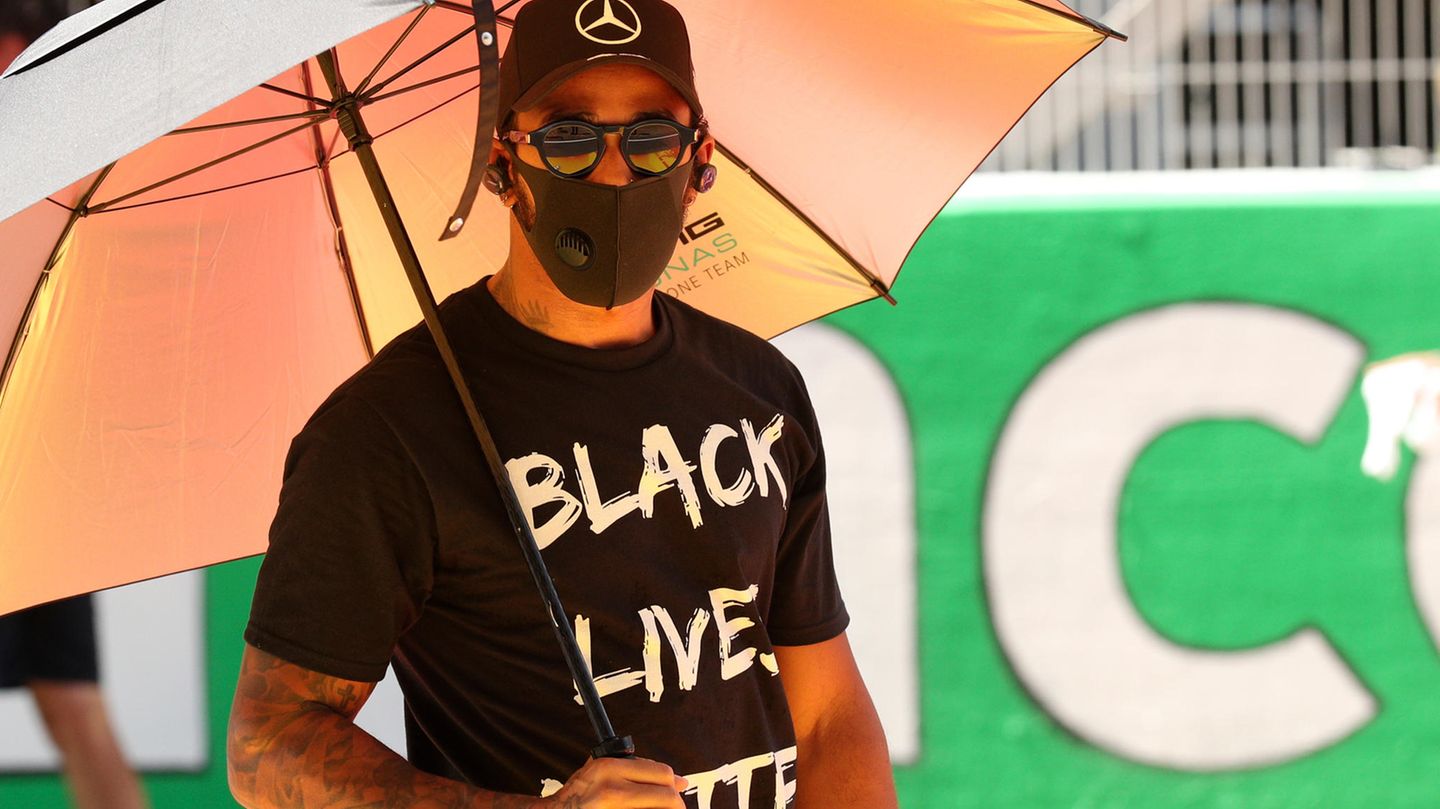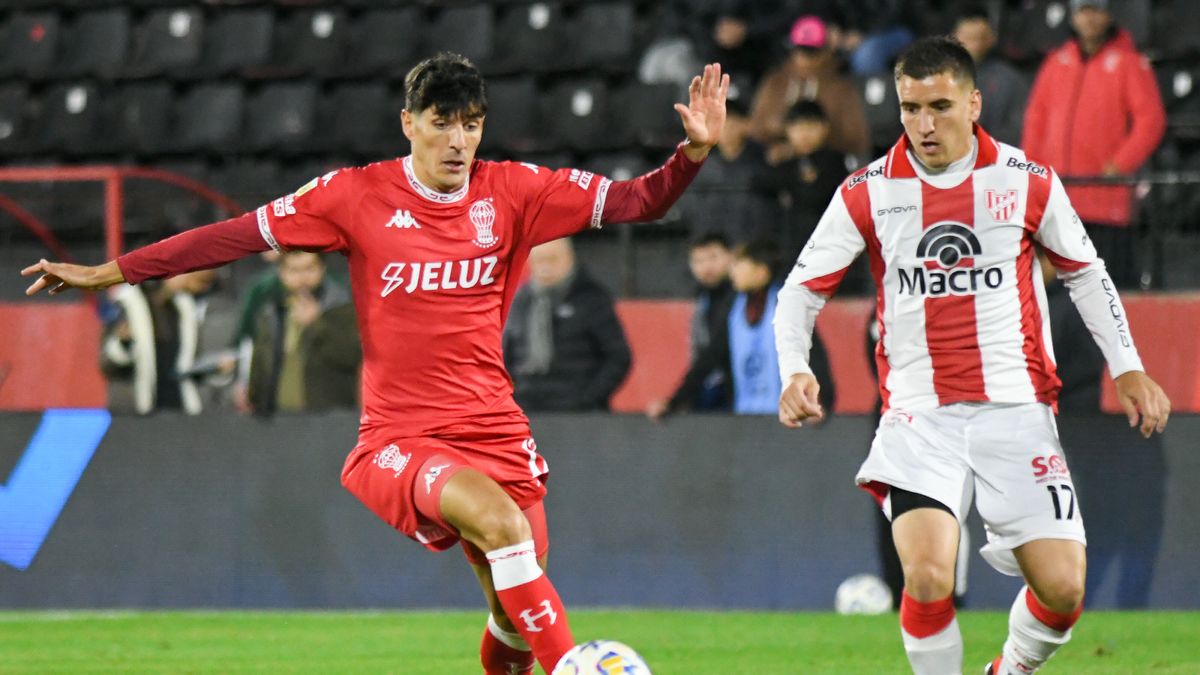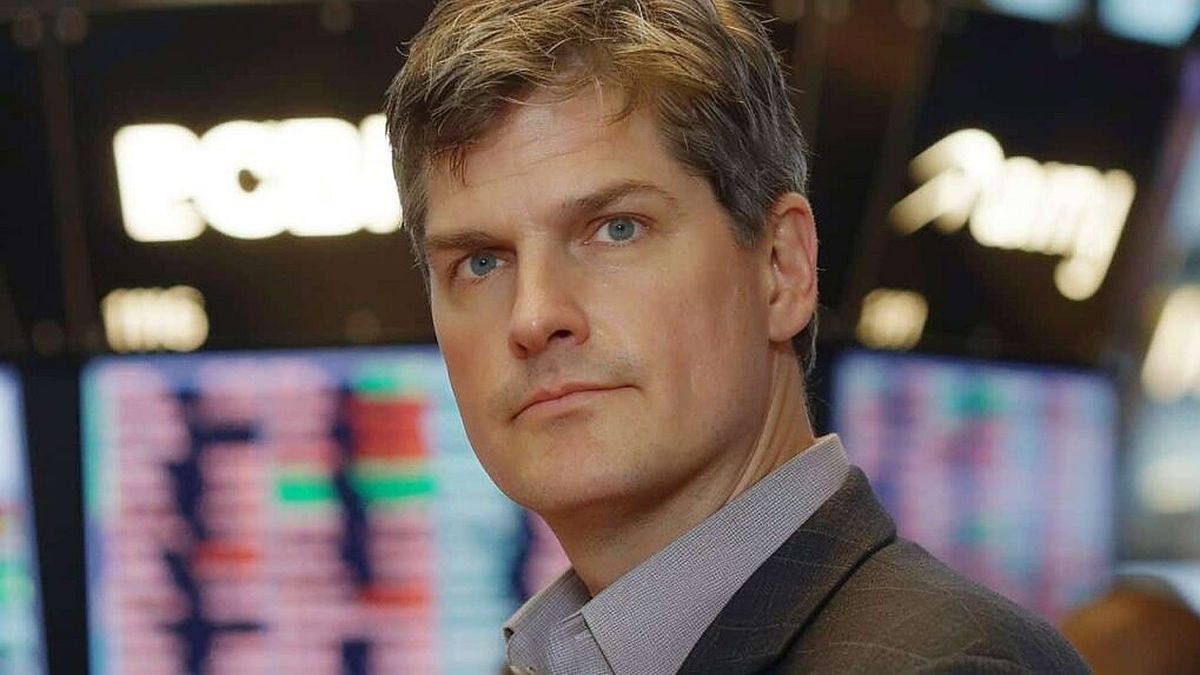Before the start of the new Formula 1 season, the mood is heated: the drivers are fighting against the fact that the world motorsport association prohibits political expressions of opinion in the context of a grand prix. The conflict could become a problem.
On Thursday, Formula 1 reported back with the test drives of the new cars. On the Bahrain International Circuit, the focus will then be on the technology for three days, with teams and engineers trying out the complex racing cars under tough practical conditions for the first time. It’s about speed, downforce, aerodynamics, tire wear. Data is diligently collected and the pilots find out whether their company car is any good at all.
But when the first race of the season also takes place in Bahrain on March 5th, a conflict will flare up again that has been stirring up Formula 1 for weeks and has nothing to do with horsepower and acceleration: the tightening of the rules for political statements, which is perceived as a political muzzle the world motorsport association Fia undertook without further ado at the end of December 2022.
Crossing is still allowed
Since then, point 12.2.1.n of the new sports code has stated that “political, religious and personal statements or comments” on the race track constitute a violation of the rules. Unless they are pre-approved. The reason for the tightening is the general principle of neutrality, to which the Fia is subject as a member of the Olympic family. Statements about parties and organizations are therefore prohibited. This also applies to statements about military conflicts or the oppression of minorities. Crossing or pointing to heaven is an exception.
The new rules were not well received in the paddock. One can also say: record world champion Lewis Hamilton and colleagues went on the barricades. “Nothing will stop me from expressing myself on the things that are close to my heart and on the issues that exist,” announced the outraged Brit Hamilton last week at the presentation of his new Mercedes company car. “Sport still has a responsibility to speak up and raise awareness on important issues, especially when we travel to all these different places. So nothing changes for me.”
He received support from teammate George Russell: “(…) That’s part of freedom of speech. We have the right to spread our views on any platform we want,” said Russell. Many of the 20 Formula 1 drivers made similar statements. McLaren driver Lando Norris felt patronized: “We’re not in school. We shouldn’t have to ask everything: ‘Can we do this? Can we do that?'” He etched. “We are mature enough to make wise decisions.”
With a rainbow helmet in Qatar
The reason for the tightening is obvious: Drivers like Lewis Hamilton or Sebastian Vettel in particular have used the big Formula 1 stage several times in recent years to get political messages out to the people.
Hamilton, seven-time world champion and racing’s biggest star, is a strong supporter of the Black Lives Matter movement and the LGBTQ+ community. In 2020, after his victory in Mugelleo, Italy, he wore a T-shirt that read “Arrest the cops who killed Breonna Taylor”. The Fia then banned T-shirts with political messages on the podium, but, under pressure from the drivers, allowed gestures such as symbolic kneeling as a sign against racism and launched the “We race as one” campaign itself.
It was Hamilton who drove the races in Qatar and Saudi Arabia two years ago with a rainbow-colored helmet and clearly criticized the homophobic laws in the Arab countries beforehand. Sebastian Vettel took a stand against climate change or criticized tar sand mining in Canada. At the 2021 Hungarian Grand Prix, the Heppenheimer showed up in a rainbow-colored T-shirt and matching corona mask. This is unlikely to happen in the future.
Formula 1 wants to preserve the business model
Such actions can become a problem for Formula 1 because they have the potential to endanger the current business model. Numerous races take place in countries that are governed by authoritarian rule or suppress LGBTQ+ rights, such as Saudi Arabia. It is obvious that the Fia does not want to get on bad terms with the organizers there, because Formula 1 collects the highest fees there. While European or American racetracks usually pay about 25 million euros for a race (with the exception of Monaco, which is said to be much cheaper), the price for Arab organizers, for example, is twice as high. Since protests against the homophobic legislation in Saudi Arabia or Qatar are not so welcome.
The racing circus is feeling what has been a general trend in world sport for years: Sport and politics cannot be separated so easily. As with the soccer World Cup or the Olympic Games, major sporting events in problematic countries are critically questioned, including by Formula 1 drivers.
At the end of last week, the Fia was forced to clarify the new rules due to the ongoing criticism and sent a three-page document to the ten racing teams. In it she warned: “The focus in every international competition must be on motorsport and the performance of the teams and drivers.”
The drivers now know that award ceremonies, driver parades or official press conferences are taboo for political statements. Failure to do so can result in drastic penalties such as point deductions or exclusion from the race. At the same time, the Fia emphasized that answers to direct questions from journalists do not fall under the ban on speaking. In the same way, the pilots are of course allowed to express themselves privately and politically on their social media channels. It must have been an attempt to get some steam out of the boiler. It didn’t work.
Sources: DPA, “”, , , “” “”, “”,
Source: Stern
I am Pierce Boyd, a driven and ambitious professional working in the news industry. I have been writing for 24 Hours Worlds for over five years, specializing in sports section coverage. During my tenure at the publication, I have built an impressive portfolio of articles that has earned me a reputation as an experienced journalist and content creator.




